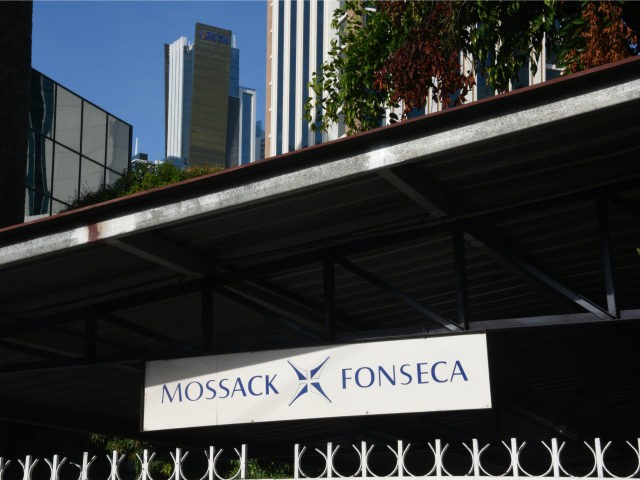The UK Independent reports that “at least three dozen Americans with legal entanglements in their personal histories did business” with Mossack Fonseca, according to the second batch of “Panama Papers” files out this week.
“Most of the US citizens now being cited in relation to the documents bought shell companies or overseas trusts with the help of Mossack Fonseca. While purchasing such entities is itself not illegal, criminality is introduced if they are used for laundering, fraud or tax evasion purposes,” the Independent writes.
For example, one of the newly-revealed Americans is former Atlanta Falcons football star Len Gotshalk. The Independent recalls he was “charged in 2010 with being a key player in a kickbacks scheme to inflate stocks of tech companies.” Three days later, he “bought a British Virgin Islands shell company that Mossack Fonseca had set up.”
“Mr Gotshalk paid $3,055 for the shell company that was called Irishmyst Consultants Limited,” the report continues:
Mossack Fonseca at first declined to take his business precisely because of ‘negative’ information that showed up in background checks of his record. However, the company relented and agreed to do business with him when he appealed the decision, reported the Washington Post, which is part of the media consortium making the data public.
Other U.S. customers were Martin Frankel, a Connecticut financier and legendary con artist who served 17 years in prison for defrauding investors, captured in a German hotel room with $8 million in diamonds and a redhead after an international manhunt; and Fatburger CEO Andrew Wiederhorn, who pled guilty to minor charges in what the SEC described as “one of the largest frauds perpetrated by an investment adviser.”
After his Mossack Fonseca dealings were made public, Wiederhorn told local KGW News in Portland his offshore company that was formed to hold real estate in the United Kingdom, was not involved in any improper activities and was duly disclosed in the financial statements of his main holding company.
A U.S. deal — of more potential interest to law enforcement — is a group of six Americans, “accused a federal lawsuit in Washington state of setting up a company through Mossack Fonseca that perpetrated a Ponzi scheme that stole more than $100 million from a collection of unsuspecting, middle class Indonesians.”
Even in this case, it is not certain Mossack Fonseca faces any legal trouble, as the Washington Post notes they retired as the registered agent for the investment firm after receiving complaints from its “angry customers.”
The International Consortium of Investigative Journalists, which obtained the Panama Papers data from an unknown hacker and publicized the material, maintains a list of what it calls “malefactors” who used Mossack Fonseca’s services.
The law firm is fighting a bit of an uphill battle to defend its “due diligence” of prospective clients but resolutely maintains it obeyed all relevant laws, and the only actual crime exposed in the Panama Papers story is the theft of its data.
The BBC reports that Mossack Fonseca issued a “cease and desist” order to prevent the publication of its stolen database, but the ICIJ ignored the order and put the entire database online. The journalistic consortium added that it would withhold sensitive information like bank account, passport, and telephone numbers from the data it published, rather than making a WikiLeaks-style “dump” of the entire trove.

COMMENTS
Please let us know if you're having issues with commenting.